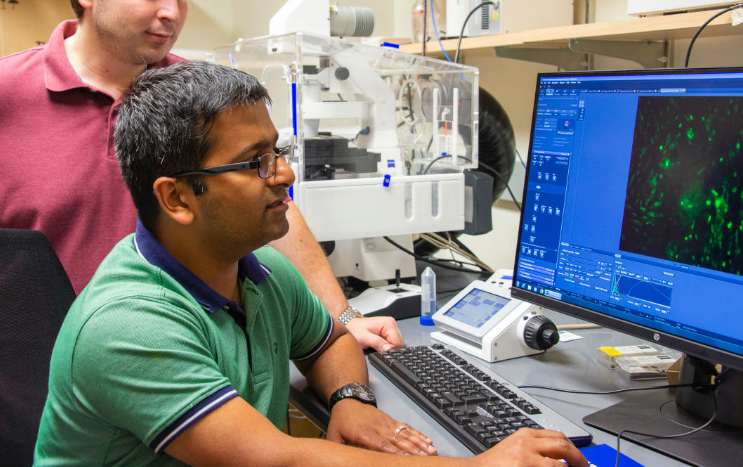A researcher at the School of Dental Medicine recently received a $2.5 million grant from the National Cancer Institute (NCI) to further investigate cancer growth and progression.
Kshitiz, assistant professor in the Department of Biomedical Engineering, will be using the funding to understand how the changes in HIF-1a, a protein which senses cellular response to oxygen, can affect cancer growth and metastasis, as well as identify the molecular mechanisms by which gene regulatory networks can decode varying signals to elicit specific transcriptional response.
“HIF-1a is one of the most important proteins affecting nearly all aspects of cancer behaviors. We had previously discovered that HIF-1a could show a dynamical response, which is in variance to the conventional understanding of its regulation,” said Kshitiz. “We thereafter found that these dynamics could be more universal and sought to understand how gene regulatory networks sensed dynamical signals and respond to them.”
The grant is a five-year National Institutes of Health (NIH) R01 grant, which can extend to a longer period. This grant is made eligible for a R37 MERIT award by the NCI, potentially providing Kshitiz up to 7 years of support.
Kshitiz also received this prestigious grant on his first try, a rarity among researchers looking for NCI funding.
“This is certainly an impressive award, as less than five percent of total awardees receive this R37 MERIT award,” said Dr. Ki Chon, chair of the Department of Biomedical Engineering.
Kshitiz’s research will aim to identify the dynamics that allow for tumors to continue to grow without oxygen, which can hopefully be translated into clinical cancer care.
“Targeting these cells could potentially allow tumors to regress,” he says.
The grant number for this funding is 1R01CA248161-01.



